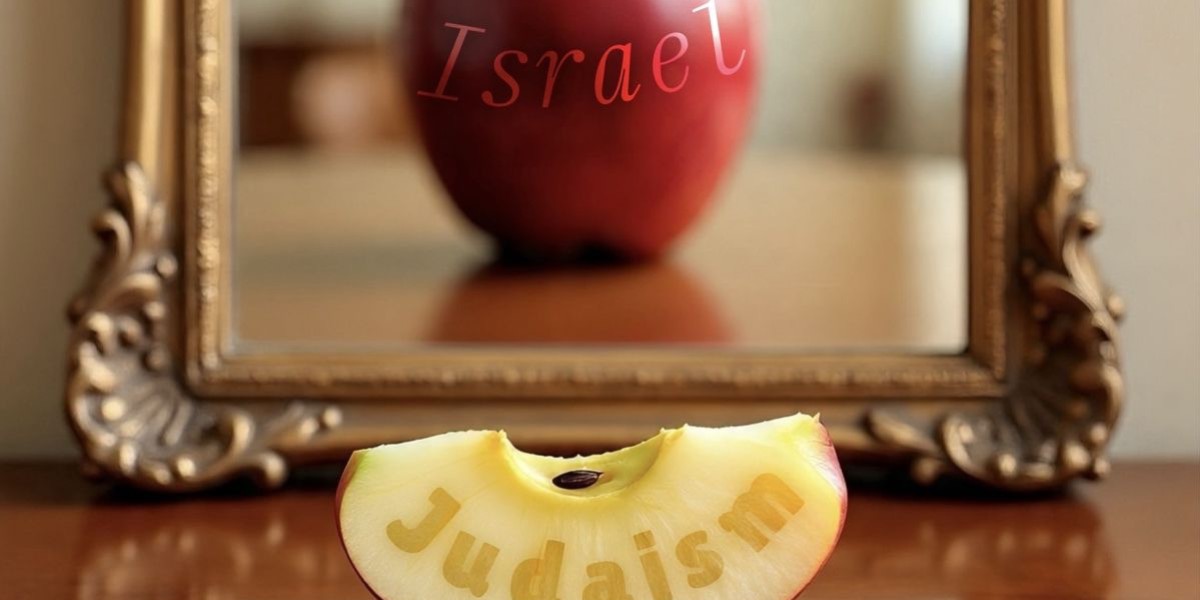Speaking English is not the issue. The Creator made all possible languages and is sovereign over every subsequent speech that has evolved.
But it’s not true to believe that because the Sovereign made a plurality of languages that all languages can or do express His truth equally. Or that they have each been applied by their caretakers accurately.
And much mendacity has happened at the hands of manipulative men since the tongues were sundered at Babel.
English is itself a “mutt tongue”, made by migration and conquest and conversion and made more malleable slowly over centuries.
The Angles, Saxons, Jutes, and Frisians spoke a Germanic tongue now known as Old English. The Germanic languages were all Norse influenced and later influenced by the Norsemen again as Vikings came to England.
Up until the Norman Conquest in the 11th century, Old English was spoken in Britain but thereafter French was the language of government and of the noble class and religious class, with Latin being the dominant influence in religion.
Over a period of about 300 years, Old English evolved into Middle English with French and Latin mixed in to form a completely different language containing leftover terms from ancient Germanic days.
“God” being one of the chief of these…
Despite the common use of the Latin “Deus” and French “Dieu”, “God” stuck fast as a term for the Creator within British parlance.
Why? Because it’s unvarnished truth that couldn’t be broken? No. But because old habits die hard.
Among those pagans of old, spirits, giants, dragons, elves, and idols were all called gods. It was a term so ingrained in the psyche of that people, it could not be broken when the people, culture, language and country had been shattered and molded back together anew.
“God” as a title for deity could not be destroyed…so what did Christian missionaries do? They accepted it and applied it to the Biblical Being Who alone is to be worshipped.
And to this day “God”, no matter how inappropriate to be used for the Biblical Being we worship, no matter its irrelevance to Him, no matter its impossibility to serve as a translation of Elohim (the word written in Scripture) still it sticks in hearts and minds.
“God” was adopted and given a distinction of singularity and a capital “G” instead of being thrown back into the pagan place it came from.
Even among those today who are otherwise purging the paganism out of their faith, this evil of the old ones so often stays. It’s understandable why it would be one of the last things to go too. It has survived so much change and upheaval over the ages.
The Bible told us to call on Elohim but our British versions of the Bible told us to call on a Saxon “God” assuming them the same. That false association is so ingrained in who we are as a people, society and culture that it’s almost impossible to see the two are no more synonymous than silverware and chopsticks.
Of course, the two different things serve similar functions but for two very different types of people and in two very different ways. Adopting God as Elohim is a major problem because it makes Biblical religion into British tradition.
Translation is supposed to utilize one language to express the meaning of another. In this case, English is intended to be used for explaining Hebrew. But that’s not what our English bibles actually do. That’s not what calling our Elohim “God” does.
What we have received from our translators is not the the meaning of the Hebrew we don’t understand in English, which we do understand… But instead, we have received English as if the English was the same as the Hebrew.
We have been given a sanctified British culture and a Scripture brought into alignment with English conceptions now consecrated. That is not a translation… That is a transfer.
That is an elevation of our own imagination, and play-acting as if they are the Bible’s ideas.
Why should we serve a “God” when the Bible said to serve a Elohim? Why should we assume that “God” - a term which never applied to the Almighty Maker of Heaven and Earth until compromises converts cast that terminology upon Him - is appropriate to use for Him? Why should we accept “God” as a translation of “Elohim” when we know the history of how “God” became a part of our religion, and it wasn’t by translation?
We have all the information available to us to ask the hard questions and acquire difficult answers. There’s no more excuse.
Just like every other tradition the Christian religion picked up over the ages, beit eating unclean, avoiding the wearing of tassels, moving Passover and mixing it with other British traditions, making the Celtic tradition of Samhein into a celebration of dead saints, bringing Germanic/Nordic tradition into the memorial of the birth of Messiah, moving Sabbath to Sunday…or what have you…in the exact same way the Church has moved Elohim aside to enforce a foreign “God” upon us passed off as the pure Elohim…and passed off that way by pretending what was worshipped by one people on one side of the planet was identical to What/Who was worshiped by another people on the other side of the planet.
But language doesn’t work that way naturally, and this nonsense adoption and adaptation of “God” replacing “Elohim” was anything but natural.
Second Guess First Assumptions
Question Everything
Get Biblical






